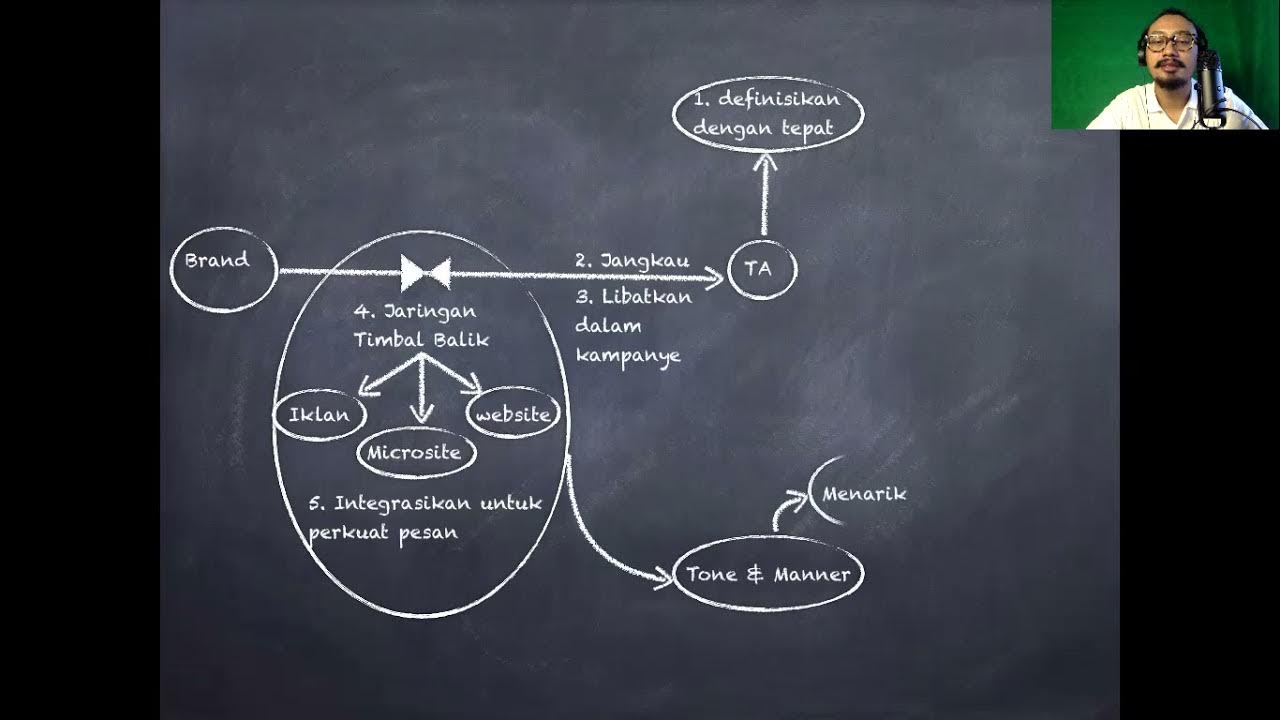YANG PERLU ANDA TAHU - CARA KERJA CRM AGAR PELANGGAN LOYAL #CRM
Summary
TLDRIn this video, Joko Ristono explains how Customer Relationship Management (CRM) strategies can foster customer loyalty and boost business success. He outlines seven essential steps: creating a communication loop, profiling customers, utilizing customer data, gathering feedback, identifying potential, turning data into actionable insights, and continuously improving services. By following these steps, businesses can build stronger relationships with their customers, tailor offerings to their needs, and drive sustained growth. This comprehensive approach to CRM helps companies deliver more personalized experiences and enhance customer satisfaction over time.
Takeaways
- 😀 CRM helps create customer loyalty by maintaining consistent and effective communication between businesses and customers.
- 😀 Establishing a communication circle with customers, including thanking them and following up after purchases, is crucial in CRM strategy.
- 😀 Customer profiling is essential to understand customer behaviors, needs, and preferences, which helps in providing tailored services.
- 😀 By using customer data, businesses can design personalized offers and programs to meet individual customer preferences.
- 😀 Regularly asking customers what they want or need ensures that businesses align their offerings with customer expectations.
- 😀 Identifying and understanding potential in existing customers, such as family referrals or unmet needs, can lead to business growth.
- 😀 Data analysis is key to understanding customer patterns and improving business offerings, making CRM more effective.
- 😀 Segmenting customers based on behaviors and preferences allows businesses to deliver more targeted and relevant products or services.
- 😀 Continuous use of CRM insights helps businesses refine their offerings and adapt to changing customer needs over time.
- 😀 The 7-step CRM strategy—communication, profiling, data usage, customer feedback, identifying potential, data insights, and continuous adaptation—creates a loyal customer base.
Q & A
What is the primary goal of Customer Relationship Management (CRM)?
-The primary goal of CRM is to create customer loyalty by building strong, lasting relationships between a company and its customers through communication, understanding, and personalized services.
What is the first step in CRM for creating customer loyalty?
-The first step in CRM is creating a communication loop between the company and its customers. This involves continuous interaction, such as follow-ups, thank-you messages, and easy communication channels.
How does customer profiling contribute to CRM?
-Customer profiling helps businesses understand the characteristics of their customers, such as their activity levels and preferences. This information allows businesses to tailor products, services, and communications to meet customer needs.
Why is data crucial in CRM?
-Data is crucial in CRM because it provides insights into customer behavior, preferences, and purchase history. By using data, businesses can create personalized offers, products, and programs that align with customer desires.
What is the significance of asking customers what they want in CRM?
-Asking customers what they want ensures that the company’s products and services meet their needs and expectations. This can be done through surveys, feedback, and direct interactions, helping businesses align their offerings with customer demands.
What does identifying customer potential mean in CRM?
-Identifying customer potential refers to recognizing opportunities within existing customers. For example, a customer who purchases a product occasionally might have a need for more, or a customer could be receptive to upselling or cross-selling based on their profile.
How does CRM help businesses adapt to changing customer needs?
-CRM helps businesses adapt by constantly collecting and analyzing customer feedback, behavior, and data. This ongoing process allows businesses to refine their strategies, products, and services to meet evolving customer expectations.
What is the role of customer feedback in CRM?
-Customer feedback plays a critical role in CRM by providing insights into what customers want and need. By regularly soliciting feedback through various channels, businesses can adjust their offerings to better serve their customer base.
How does CRM use data segmentation to improve customer loyalty?
-CRM uses data segmentation to group customers based on similar characteristics, such as purchase behavior or preferences. This enables businesses to create targeted marketing campaigns, offers, and services that resonate with each customer segment.
Why is continuous improvement important in CRM?
-Continuous improvement is important in CRM because customer needs and market conditions change over time. By regularly reviewing and updating CRM strategies, businesses can ensure they remain relevant, responsive, and capable of maintaining customer loyalty.
Outlines

This section is available to paid users only. Please upgrade to access this part.
Upgrade NowMindmap

This section is available to paid users only. Please upgrade to access this part.
Upgrade NowKeywords

This section is available to paid users only. Please upgrade to access this part.
Upgrade NowHighlights

This section is available to paid users only. Please upgrade to access this part.
Upgrade NowTranscripts

This section is available to paid users only. Please upgrade to access this part.
Upgrade NowBrowse More Related Video

Customer Relationship Management Implementation on Gojek Indonesia

What is Customer Relationship Management (CRM)?| From A Business Professor

Customer Loyal dengan PENGEMBANGAN DATABASE PELANGGAN #CRM

SIMAK, PENITNG NICH: APA ITU CRM? #CRM

FIDELIZAÇÃO DE CLIENTES (05 Dicas Incríveis Para Fidelizar Seus Clientes)

Digital CRM
5.0 / 5 (0 votes)